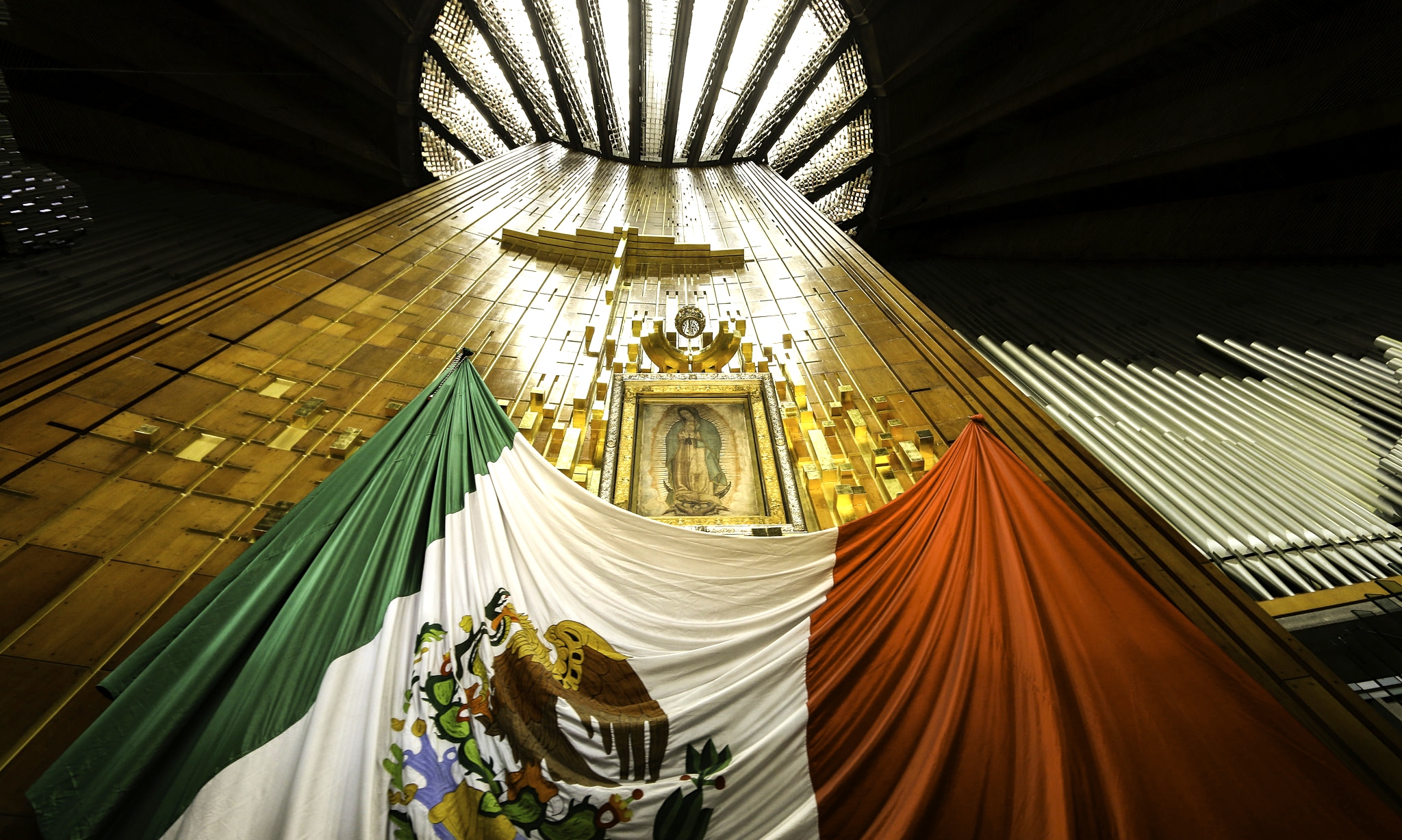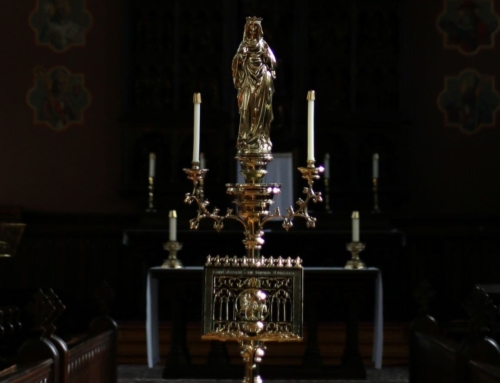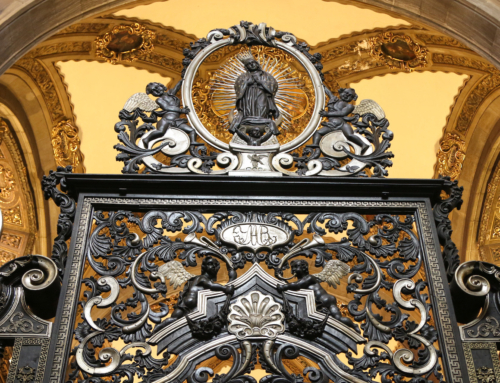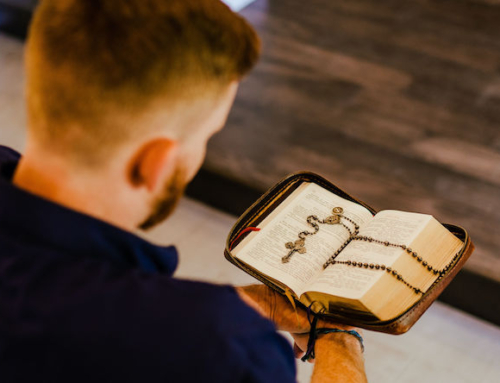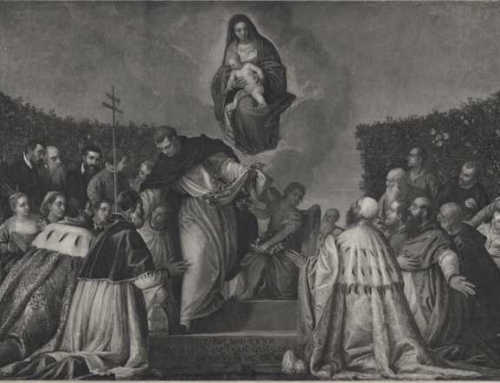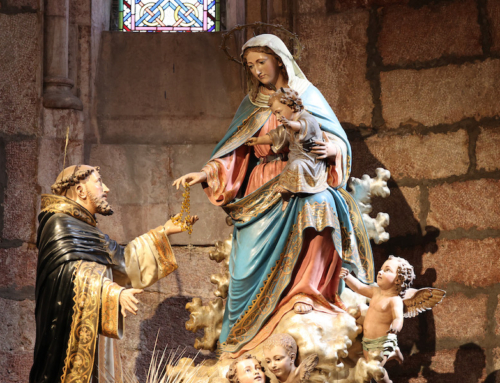The Mexican people, after two centuries of experiments and defeats,
have faith only in the Virgin of Guadalupe and the National Lottery.
Around the same time Mexican poet and Nobel Laureate Octavio Paz wrote these words, the U.S. Tax Court heard a unique case, Diaz v. Commissioner of Internal Revenue—the case of Our Lady and the lottery. Whereas Paz’s words have a bitter edge, this hearing supplies something more hopeful and more fitting for Advent, as we contemplate not only Christ’s first coming but also the last things, including judgment.
Diaz v. Commissioner concerned U.S. citizen Alfonzo Diaz, who, the Commissioner of the IRS claimed, owed $1.6 million in taxes because he was the owner of winning tickets in a 1966 Mexican National Lottery drawing that paid out 32 million pesos (then the equivalent of $3 million). Alfonzo insisted that his uncle Jose, a Mexican citizen, owned the tickets, not him.
Alfonzo had been born in El Paso, Texas, but was raised in his grandmother’s house across the border in Juarez, Mexico. He returned to the U.S. as a teenager, but back in Juarez lived Alfonzo’s uncle Jose, an uneducated man who, despite suffering from poor vision, advanced age, and a pronounced limp, worked full-time as a delivery man, making the equivalent of $12 a week. Uncle Jose was a pious soul. He attended Mass daily and made annual pilgrimages to the Basilica in Mexico City to honor Our Lady of Guadalupe.
This devotion seemed to pay off, so to speak. On September 16, 1966, the Mexican National Lottery was scheduled to hold one of its “grand” lotteries. Six weeks before the drawing, the Lottery received a telegram from a representative in Juarez requesting information on the whereabouts of ticket number 37281.
Alfonzo and Uncle Jose had requested this telegram be sent.
Several days earlier, Uncle Jose had a dream, he said. Our Lady of Guadalupe appeared to him, telling him to buy lottery ticket number 37281. Jose sought his nephew’s help in finding the tickets (multiple tickets bearing the same number were available). All the tickets were on sale, they learned, 700 miles away in the city of Monterrey. In total, they cost 3,750 pesos ($300), which was precisely the amount Uncle Jose had saved up for himself. He offered his whole livelihood for these tickets. A money order was sent, and the Monterrey ticket office mailed Uncle Jose the tickets bearing number 37281.
At the lottery drawing, none other than number 37281 was pulled.
The family was ecstatic. On the bus trip to Monterrey to claim his winnings, Uncle Jose wore two pairs of pants: one with the winning tickets safety-pinned inside the pockets, and another pair over that. Alfonzo traveled with him and helped him deposit the money in the bank, where, bank representatives had suggested, the nephew also have signatory power on the account. Hence the IRS’s interest in this case.
Was this all too good to be true? An elaborate fabrication? Judge Theodore Tannenwald didn’t think so. He ruled in favor of Alfonzo. No U.S. taxes would be paid on the winnings.
In his judicial opinion, Tannenwald wrote that he was persuaded by the various members of the Diaz family and the consistency of their testimony. He went on to emphasize that
the testimony of [Alfonzo’s] 86-year-old grandmother, who was also Jose’s mother, was most convincing. Obviously closer than most to her Maker and face-to-face with her priest in the courtroom, she completely corroborated the essential elements of the testimony of [the] petitioner and his uncle (her son)—testimony which she had not heard because witnesses were excluded from the courtroom.
Here we find a judge aware of the Judge.
Tannenwald respected that all four candles on the Advent wreath of this woman’s life were lit, we could say. As she testified in the presence of a priest (at Judge Tannenwald’s request, I was told by a judge who knew Tannenwald and first relayed this story to me), so would she soon stand before Christ, for particular judgment. The idea is that, built up by the grace supplied by His first coming as savior, she would not compromise her status for His second coming in judgment. If a family member wins the lottery, you shout for joy for a long time. But when you gain heaven, the joy is everlasting.
Now, what did Uncle Jose do with his winnings? If he proved a good and faithful servant, using his wealth to help others, this would seem to help substantiate the claim that it came through Our Lady’s aid. I wasn’t able to find any information on Uncle Jose’s stewardship, however. Instead, we will have to wait for the Last Judgment, which “will reveal even to its furthest consequences the good that each person has done or failed to do during this earthly life” (CCC 1039). The reality of this second coming of Christ in glory is something we are also called to reflect upon in Advent.
In the meantime, we turn to Our Lady, the Virgin of Guadalupe. May she obtain for us the grace of serving Christ faithfully, as well as the gift of final perseverance.
✠
Image: Fr. Lawrence Lew, O.P., Empress of Mexico (used with permission).

